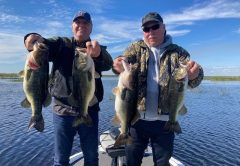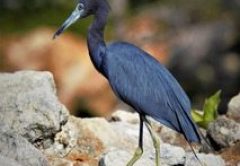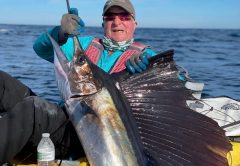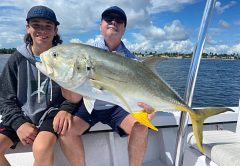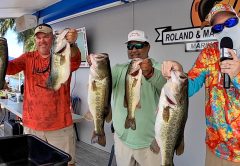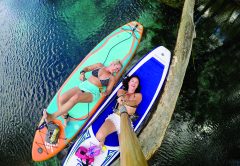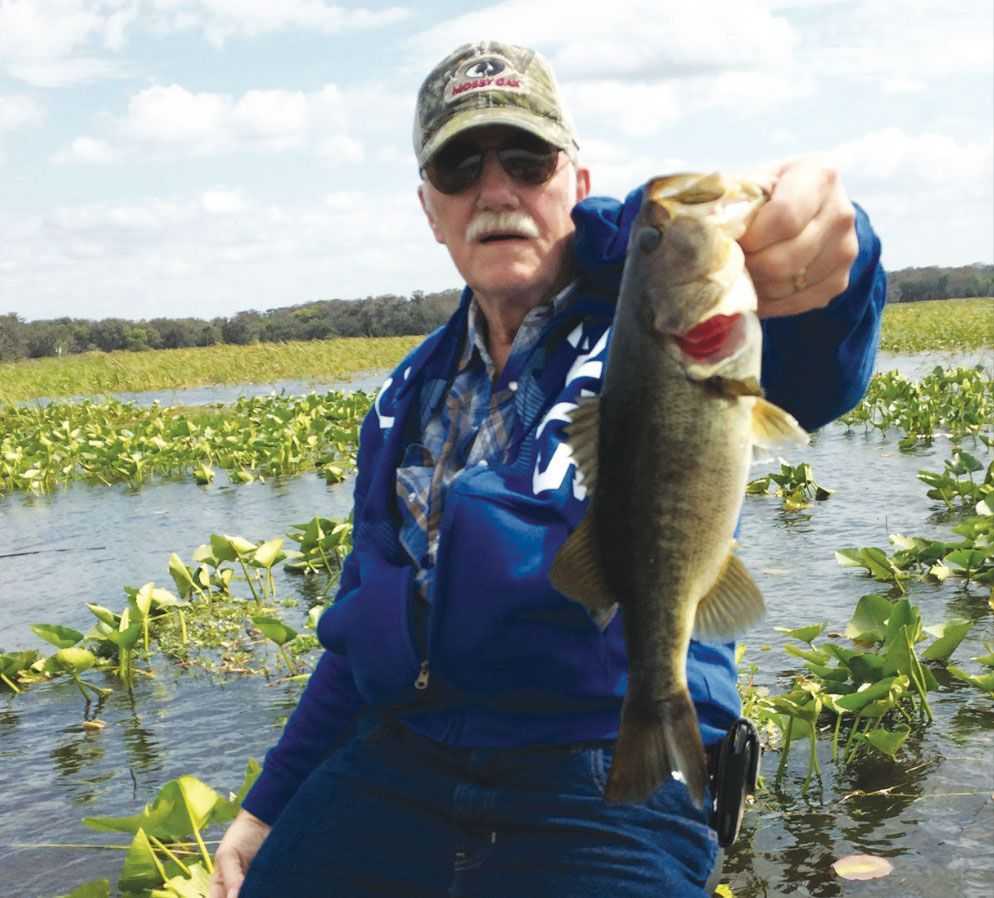
Like many Lake Okeechobee bass-fishing guides, I have repeat customers from up north who come down every year to fish with me, often reserving the dates a year in advance. Timing can be critical, since the weather can go either way.
This past mid-February proved to be a pretty dramatic change in the weather here in Highlands County. High winds from the northeast, combined with rapidly falling temperatures provided some of the toughest fishing days I’ve ever encountered.
Only one of the five days on the water proved to be a successful, catching and releasing over a dozen bass up to five pounds, four days after the cold front. Each of the other days, we managed to catch a few bass, but winds of 20-25 mph, combined with falling lake temperatures made for long periods between bites.
Two customers, Bill and John Huffnagel, who come down from Canada every year, booked three days with me. The first scheduled day, February 19th, the overnight temperature was forecasted to be 28 degrees, with clear skies and high winds. The next few days were only slightly better.
When I picked them up at their hotel, I apologized for the weather conditions, although I understood that they would only be here for three days, so we had little choice but to go fishing. What was interesting was Steve’s response to my concern over the weather.
“We’re used to fishing in cold weather,” Steve said, “in fact in early April when the ice finally clears off the lake and the water opens up, we’re fishing in similar weather conditions, catching bass, even though the water temperature is much colder.”
I knew he was right. When I lived in Ohio, we typically started our tournament year on the last Sunday in March and we were often greeted with floating ice and water temperatures in the low 40’s. After surviving the winter, the bass generally cooperated in less than ideal weather conditions.
The conversation got me thinking. Why can the fishing be so bad here in Florida when the water temperature falls into the 50’s, when up north, we have no problem catching bass in the same or even lower temperatures?
Then, the other day I was reading my March issue of FLW Bass Fishing and I read an interesting article by Wes Porak, the black bass research biologist for the Fish and Wildlife Research Institute with the Florida Fish and Wildlife Conservation Commission.
The headline for his article, “Florida Bass Can’t Handle The Cold” couldn’t have been more appropriate.
In his article, he states “there are a lot of physiological differences between Florida bass and northern bass that, when taken into account, can give anglers a great deal of insight into their behavior in many situations, such as a decrease in water temperature associated with cold fronts.”
“Biologists are amazed at how different, genetically, the two types of bass are. So much so that many scientists now consider Florida bass a completely different species. We know from detailed studies that Florida bass spawn earlier, react to lures differently and handle the stress of capture differently. More importantly to anglers, Florida bass grow to much larger sizes than northern largemouths.”
“Another important difference, and possibly the key to this question, is that we know Florida bass have a very different thermal tolerance. They have a much lower threshold for severe cold temperatures, which is a result of their adaptation to the subtropical temperatures found in their home range. The difference is so stark that Florida bass have not survived when stocked in northern latitudes where it tends to get extremely cold. Intuitively, this physiological difference in the Florida bass’ ability to tolerate cold conditions might play some role in their often observed ‘lock-jaw’ during cold fronts.”
So there you have it! The next time you’re out on the water during our winter months and a cold front comes through; remember there is a difference when it comes to catching Florida largemouth bass.

